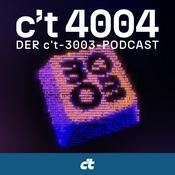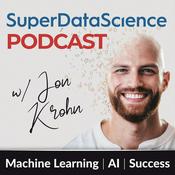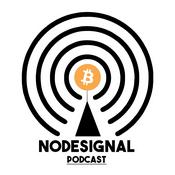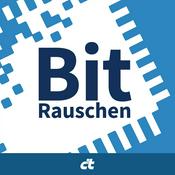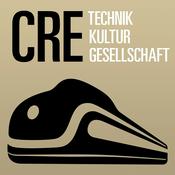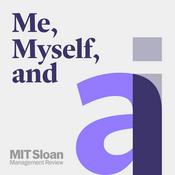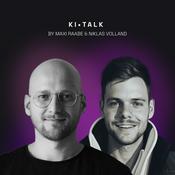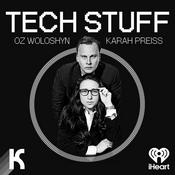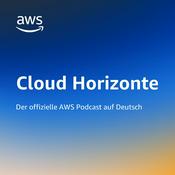193 Episoden
- Join us as we explore Swift beyond iOS with Sebastien Stormacq, AWS Developer Advocate and Swift specialist. Discover why Swift is becoming a compelling choice for server-side development, offering native compilation, memory safety without garbage collection, and modern concurrency features that deliver exceptional performance and cost efficiency.
Seb shares how Apple processes billions of daily requests using Swift on AWS infrastructure, achieving 40% better performance and 30% lower costs when migrating services from Java. We dive into the technical advantages that make Swift competitive with traditional backend languages, explore the vibrant server-side ecosystem with frameworks like Vapor and Hummingbird, and discuss practical implementations including serverless architectures on AWS Lambda.
Whether you're a Swift developer curious about server-side possibilities, a full-stack developer looking to unify your tech stack, or a backend engineer evaluating language options, this conversation offers practical insights into Swift's capabilities beyond the client. - Join us as we dive into the new local unit testing capabilities for AWS Step Functions with Jas Narula, Product Manager from the Step Functions team. We explore how developers can now test their workflows locally using the enhanced Test State API, moving beyond the limitations of the discontinued Step Functions Local container.
Jas walks us through the new mocking capabilities, support for advanced states like Map and Parallel, and how this API-based approach gives you the same production runtime for testing.
We also discuss the partnership with LocalStack for offline testing, the developer experience with popular testing frameworks like PyTest and Jest, and why this new approach makes Step Functions development more like traditional test-driven development.
Whether you're orchestrating Lambda functions, calling Bedrock APIs, or building complex business workflows, this episode shows you how to test with confidence before deploying to the cloud. Building AWS Builder Center: Architecture Lessons from a Large-Scale Community Platform
21.11.2025 | 42 Min.In this episode, we dive deep into AWS Builder Center, the new community platform designed to consolidate all AWS developer resources into one central hub. Roopal Jain, Software Development Engineer on the Builder Center team, explains how this platform brings together previously scattered AWS community properties like re:Post, Skill Builder, and community.aws into a unified experience for builders.
Beyond exploring what Builder Center offers - from articles and events to toolboxes organized by programming language - we take a technical deep dive into how the team built this large-scale web application. Rupal shares the architectural decisions behind their serverless microservices approach, the challenges of integrating Neptune graph database for social features like user following, and creative solutions for handling dual authentication methods in API Gateway.
The conversation reveals real-world implementation challenges that many developers face, from VPC networking complexities to service-to-service authentication patterns. We also discuss Builder ID, AWS's new individual identity system, and get a glimpse of what's coming next for the platform.- In this episode, we dive deep into Amazon ECS Managed Instances, a new compute option that bridges the gap between EC2 and Fargate for container deployments. Our guest Olly Pomeroy, AWS Container Specialist, explains how this new offering provides the flexibility of EC2 with the managed experience of Fargate. Learn about the architecture behind ECS Managed Instances, its pricing model, and how it handles instance lifecycle management automatically. Discover how AWS manages the underlying operating system using Bottlerocket OS, providing enhanced security through a read-only file system. Whether you're running GPU workloads, need specific instance types, or want to optimize costs, this episode covers everything you need to know about this new deployment option for containerized applications.
- In this follow-up episode of the AWS Developers Podcast, we continue the conversation with Alex Huides, Principal Network Specialist Solutions Architect at AWS, focusing on Amazon VPC Lattice. We explore how developers can simplify networking concerns while maintaining robust connectivity between applications. Alex explains how VPC Lattice introduces a new boundary concept called service networks, which allows applications to communicate across accounts and VPCs regardless of IP overlap issues. The discussion covers how VPC Lattice abstracts away complex networking details, replacing traditional load balancers while providing secure, private connectivity between services. This episode demonstrates how AWS is removing undifferentiated heavy lifting in networking, making it easier for developers to focus on building applications.
Weitere Technologie Podcasts
Trending Technologie Podcasts
Über The AWS Developers Podcast
Stay updated on the latest AWS news and insights for developers, wherever you are, whenever you want.
Podcast-WebsiteHöre The AWS Developers Podcast, Bits und so und viele andere Podcasts aus aller Welt mit der radio.de-App

Hol dir die kostenlose radio.de App
- Sender und Podcasts favorisieren
- Streamen via Wifi oder Bluetooth
- Unterstützt Carplay & Android Auto
- viele weitere App Funktionen
Hol dir die kostenlose radio.de App
- Sender und Podcasts favorisieren
- Streamen via Wifi oder Bluetooth
- Unterstützt Carplay & Android Auto
- viele weitere App Funktionen


The AWS Developers Podcast
Code scannen,
App laden,
loshören.
App laden,
loshören.







